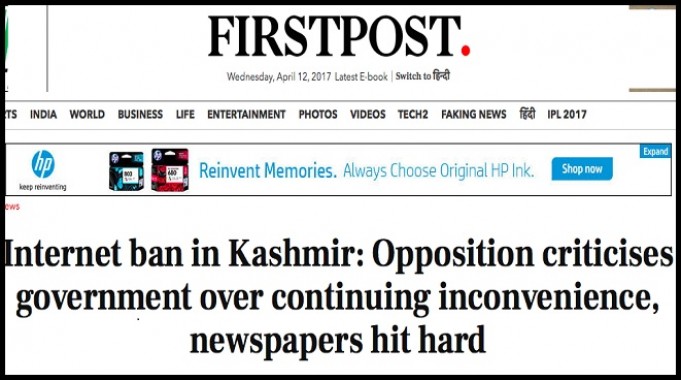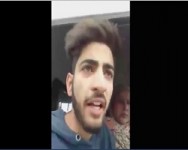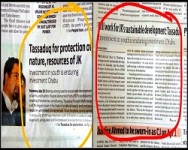In Kashmir Internet ban frustrates media
Srinagar: Since April 10, journalists in Kashmir are scouting from one place to another in search of an Internet connection. The Internet was shut on the night of April 9, a day before by-polls in the Srinagar parliamentary constituency.
The decision followed large scale violence during the by-poll which claimed the lives of seven people in firing by security forces. Internet services will remain suspended in the entire Kashmir valley till the conclusion of the by-poll for the Anantnag Lok Sabha seat on April 12, the authorities announced.
For the past two days, news organisations and journalists have had a frustrating time reporting and sending their news feed or stories to their offices based outside the region. Take the Press Trust of India. The news agency sent its news feed to its New Delhi office by dictating on the phone or faxing the copy because the BSNL broadband line was shut.
PTI’s Srinagar-based correspondent Sheikh Suhail said “big stories” could not be dictated on the phone. “It is a problem. We SMS names of persons or places to avoid errors. You have no means to check the government’s or political parties’ response. Information comes in bits and pieces,” he told The Hoot.
PTI is not alone in dictating stories on the phone. International news agency Agence France Presse has had to receive stories on the phone too from its Srinagar-based correspondent Parvez Bukhari. ’At times I transmit copies on the phone and then they read back to me. At times I hop from place to place for Internet. Sometimes I am able to find some connection but not most of the times,” said Bukhari.
Similarly, ANI had to call a four-member team from the Delhi office to run two OB vans for sending news feeds after the Internet was banned. “We read script on phone to our assignment desk in Delhi as mails are not working. But carrying OB vans along is a problem in the Valley because of negative perception about national media. So it is challenging task to work without Internet,” said ANI correspondent Shah Gowhar.
Outlook magazine’s special correspondent in Kashmir Naseer Ganai argues it was more than “gatecrashing” to enter a news organisation where the Internet was working amid the ban. “Though news organizations where Internet is working are benevolent to allow you to send copies to your office but it is humiliating to enter an office and request them for the Internet,” said Ganai, who sent his story by accessing the Internet at a local news organisation.
Abid Bhat, a freelance photojournalist whose work has been published by national and international news organizations, recounted that he had to run from pillar to post for the Internet to mail his photos. “News organisations cannot wait, especially for freelancers. And this Internet ban is the worst phase we come across,” he said.
Last year, he said he had to send an assignment to India Today amid an Internet blackout. “On Eid I ran from one place to another to find Internet access and finally I found one at Srinagar airport that evening,” Bhat said.
Is the ban selective?
The Internet service is not affecting the police or army or a few political parties as they have got dedicated leased lines. According to a police official, they have got leased lines from private Internet service providers due to which they don’t face problems. An army official confirmed they have access to the Internet but parried further questions.
A journalist who was not authorised to speak to the media without the consent of his news organisation said the ban is a deliberate attempt to handicap the messenger. He pointed out that journalists missed the press conference of PDP leader Tassaduq Mufti (chief minister Mehbooba Mufti’s brother) because they could not receive emails.
A local newspaper owner, whose organisation was facing an Internet ban, said the blackout was a deliberate attempt to prevent the documenting of history. “Entire government and security establishment has access to internet. But media has been left out,” he said.
But PDP youth president Waheed-ur-Rehman Para defended the “temporary ban to prevent loss of life”. He said: “It can’t be said if the ban helps or not. But it is not selective or aimed to prevent the documenting of history. History was recorded before Internet was available.’
How does the government ban the Internet?
A private Internet service provider, CNS Infotel Services Private Limited, is providing Internet services to the majority of news organisations in Kashmir. Its director Riyaz Mir said they receive a written order from the police for suspending the Internet. “Almost all the news organisations are my subscribers. They keep requesting for restoring Internet to their offices but I can’t do it unless we receive written orders,” said Mir, who had not received orders for restoring the Internet on the third day of the ban.
In the last year alone, Kashmir has reeled under an Internet blackout 10 times while prepaid Internet services were restored after six months.









